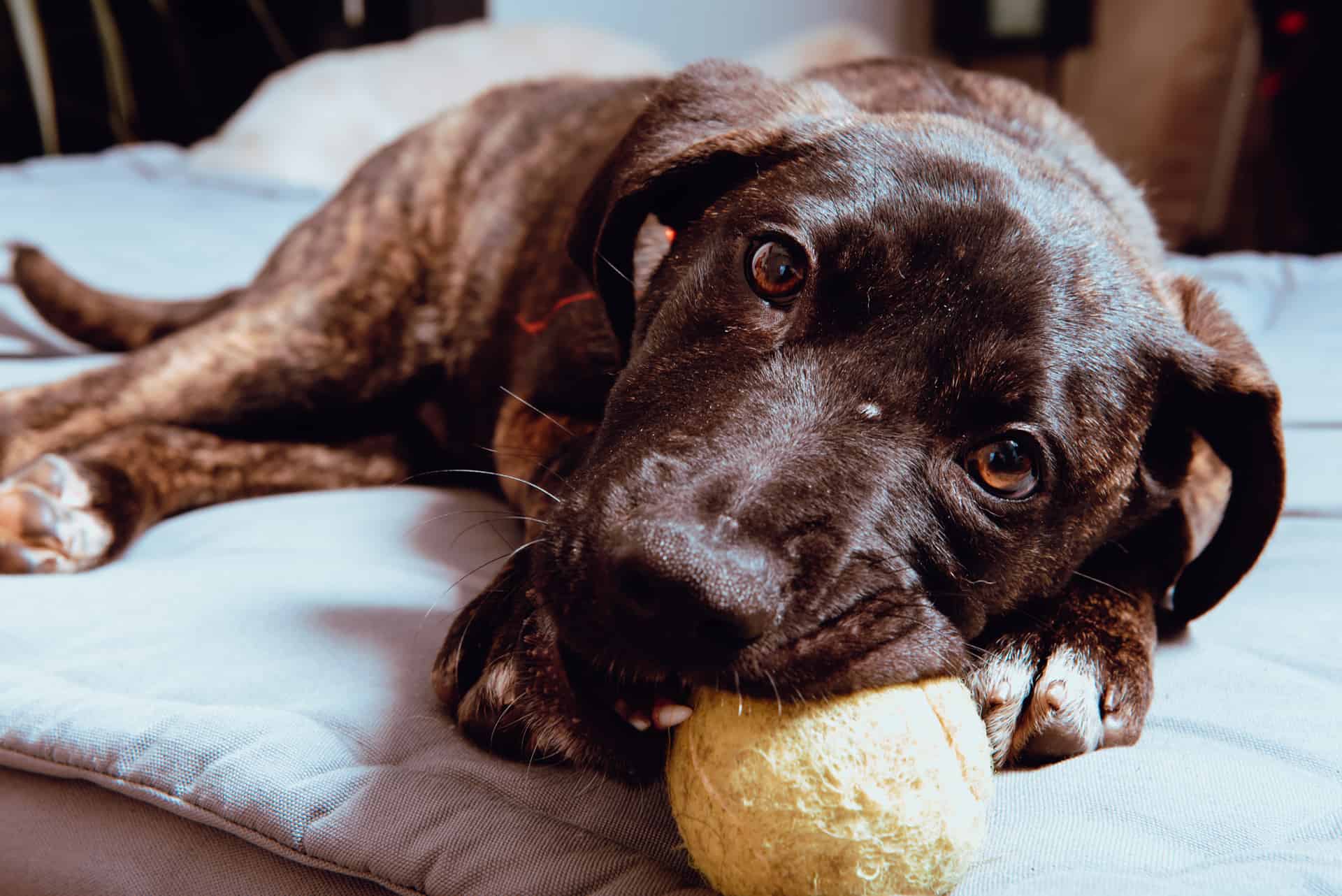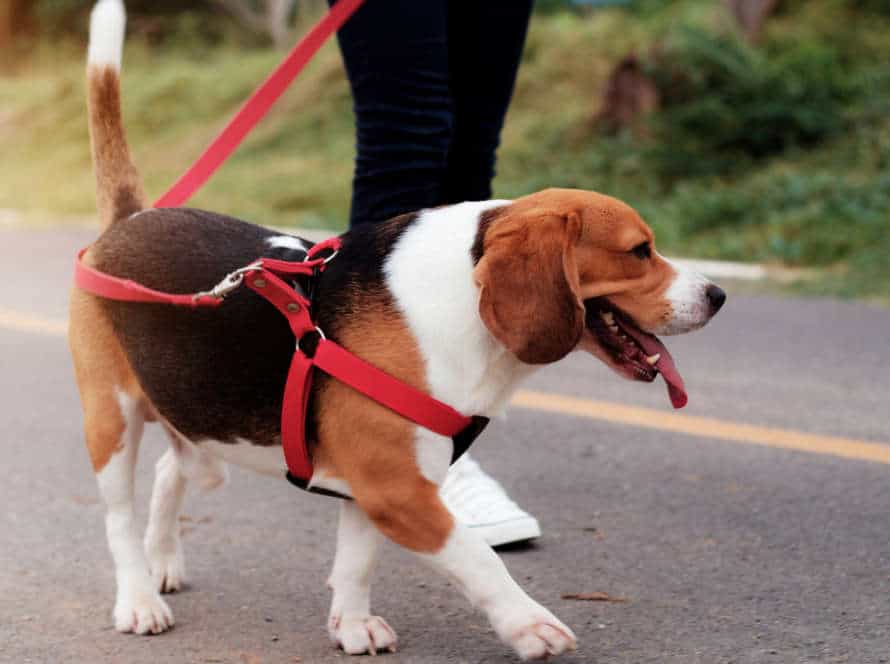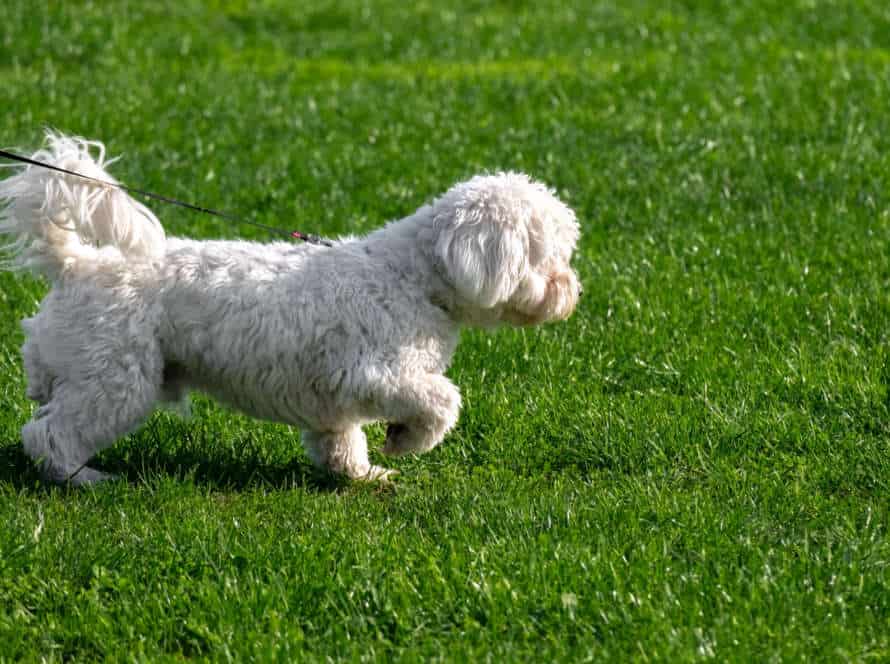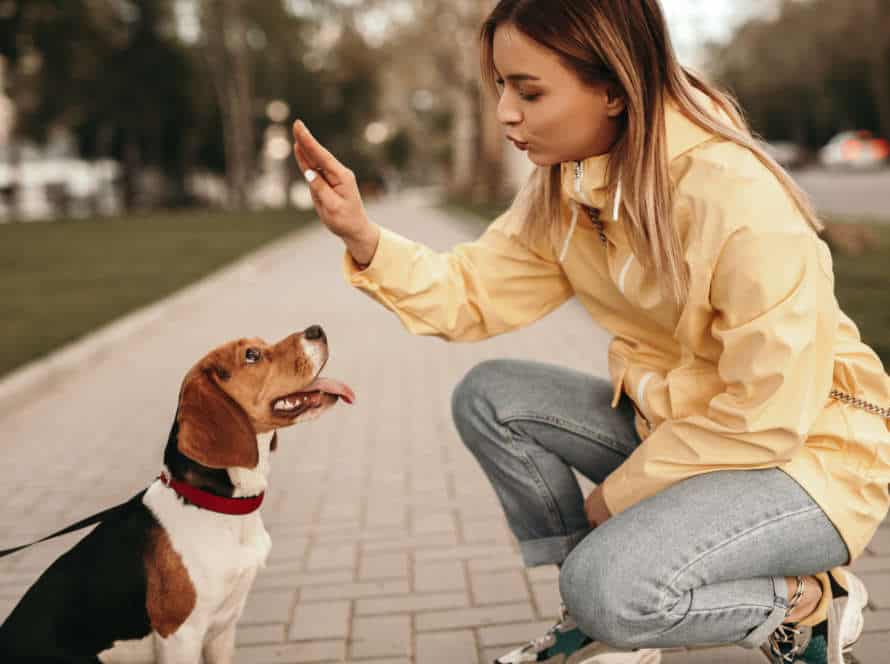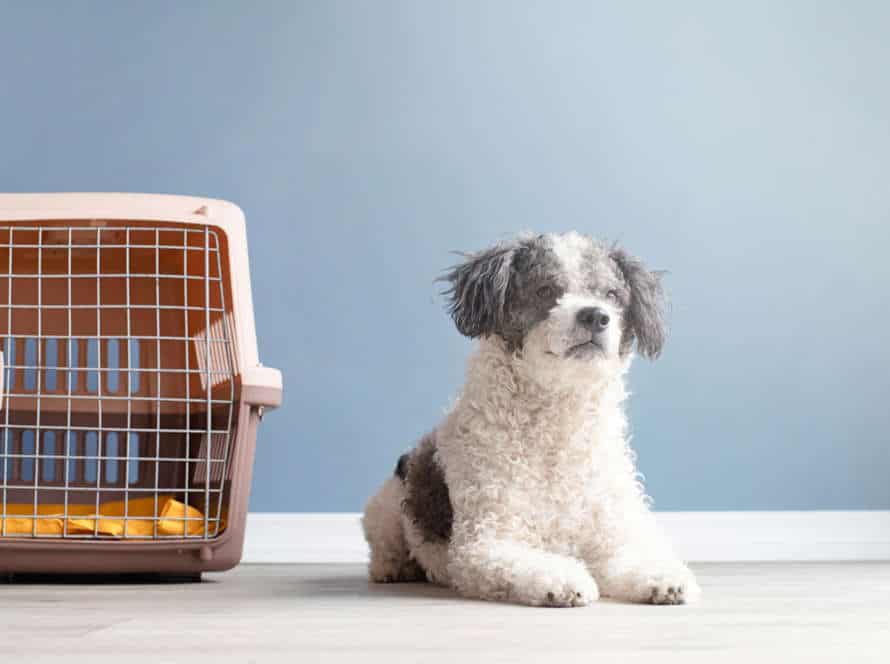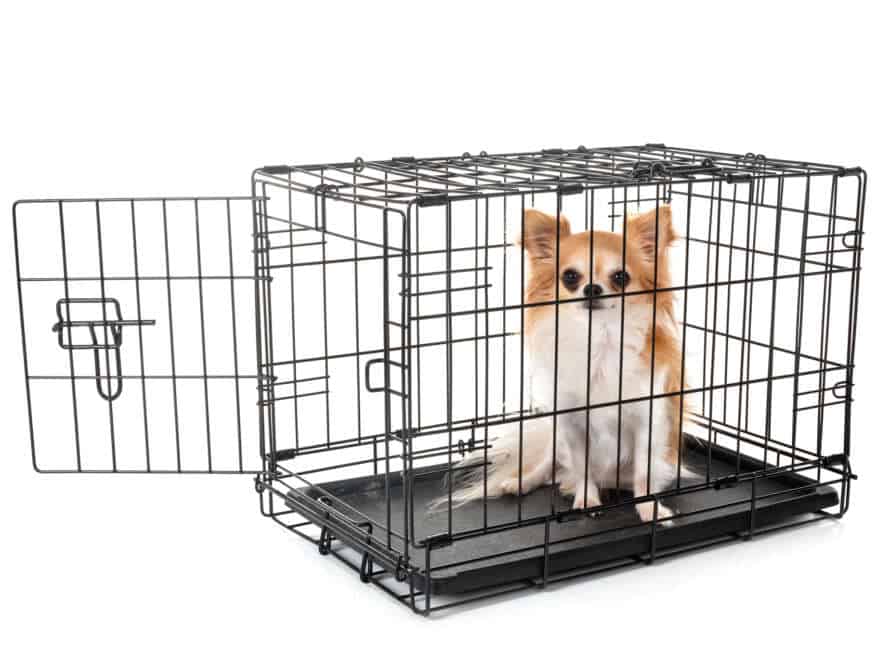Tips for Redirecting Puppy Biting When Handling Your Puppy
Redirecting puppy biting is vital. Here are some tips to stop it:
- Understand that puppies need to bite and chew.
- Don’t scold them – give them an object to bite.
- Praise and reward when they switch their attention.
- Positive reinforcement training works too. Offer treats or praise to reinforce good behavior.
- Socialize your pup for bite inhibition.
Pro Tip: Consistency is key. Repetition and positivity will help create good habits.
Understand the Reason Behind Your Puppy’s Biting
Why is your pup biting when you try to handle it? It’s important to know. Generally, pups bite because they are teething, full of energy, or overwhelmed. Plus, they bite as a kind of play. Knowing the reason can help you find better ways to manage the behavior.
Teething
Puppies often bite and chew on things because of teething. This helps ease their sore gums. We must guide them away from this to stop damage to our stuff, and teach them the right way to bite. Here are some tips:
- Offer them a puppy-safe chew toy. This will take their mind off things and make gum-pain go away.
- Keep our items out of reach and distract them when they start to chew on unsuitable items.
- Don’t punish them. Instead, reward good behavior with positive reinforcement.
- Have regular training sessions with them to teach them the right way.
By guiding them, we can help them create healthy habits and stop damage to both their and our belongings.
Playfulness and Excitement
Puppies bite because they are playful and excited. Teach good behavior early to stop bad habits. Here are tips to control biting:
- Give toys like chew toys or tug ropes so the puppy focuses on them instead of biting.
- Be consistent. Every time puppy bites, switch to a toy or activity.
- Don’t use hands or feet as toys or redirections.
- Reward good behavior with praise, treats or playing with toys.
- Patience and consistency are key! Puppies learn with repetition, so keep a routine.
Fear or anxiety
Puppy biting is a common issue for pup parents. Anxiety or fear can lead to it. This is because when pups are scared, they bite to defend themselves or take control. Other reasons include teething, boredom, or lack of exercise. Try these tips to help:
- Give plenty of toys and chews to satisfy their teething needs.
- Make sure your puppy gets enough exercise, playtime, and mental stimulation.
- Teach them bite inhibition. Yell “ouch” when they bite you, then redirect them to a toy.
- Avoid rough play or games that involve grabbing, wrestling, or chasing.
- Use positive reinforcement training to teach acceptable behaviors and commands, such as “sit” or “leave it.” Consistency and patience are key for redirecting puppy biting.
Redirect Your Puppy’s Attention to a Toy
Stop your puppy’s biting? Redirect their attention to a toy! Give them something to explore. This rewards them for not biting and gives them something more positive to focus on. Help them learn to replace the bad behavior with something better!
Provide Appropriate Toys for Your Puppy
It’s essential to supply your pup with the correct playthings for diverting their focus and thwarting detrimental behaviour. Here’re a few tips for managing pup biting when managing your puppy:
- Pick the suitable toys: Puppies need toys that are safe, enduring, and befitting their age and size. Chew toys, interactive toys, and puzzle toys are great for turning biting behaviour.
- Instruct “Leave it” and “Drop it” commands: These commands will assist your puppy understand which toys are okay to chew on and which items are not allowed.
- Utilize positive reinforcement: Compliment and reward your pup when they play with proper toys instead of biting.
- Remain consistent: Consistently shifting your puppy’s attention to suitable toys will educate them to make the right decision.
Remember, guiding your pup’s biting behaviour takes time and patience, but with these tips and suitable toys, you can avoid destructive behaviour and encourage positive playtime.
Use Toys to Redirect Your Puppy’s Attention
Want to stop puppy biting and teach them acceptable behavior? Redirecting their attention to a toy is the way to go. Here are some helpful tips:
- Pick a toy your puppy loves to play with.
- When the biting starts, no eye contact & no interaction.
- Offer the toy, use a friendly tone.
- If puppy bites the toy, praise & give treats.
- If they still bite you, remove yourself and try again later.
Remember, no physical punishment or aggression. Redirecting attention to a toy teaches them that biting is wrong.
Teach Your Puppy to Play with Toys Instead of Biting
Teaching your pup to play with toys rather than bite is a key part of training them. Here are some tips to help:
- Have a range of toys around that are suitable for their size and age.
- When playing, use positive reinforcement so they know toys are a great option instead of biting.
- If they do bite you, immediately divert their attention to the toy. Use a cheerful tone and reward them when they use it.
- Be consistent with the training and give your puppy plenty of chances to play with toys. Eventually, they will replace biting with playing.
Positive Reinforcement for Good Behavior
Positive reinforcement is a strong way to teach your puppy manners. If your pup bites when you handle them, redirect that behavior with positive reinforcement. This can include verbal praise, treats, and treats with toys. Let’s look deeper and find out how to use positive reinforcement for puppies who bite.
Praise and Reward Your Puppy for Good Behavior
Praise and reward your pup when they show good behavior. This encourages them to do it again in the future. Redirect biting with a toy. Praise and reward when they chew the toy instead of your hands or furniture. Use positive reinforcement every time they show good behavior, like sitting or playing. To avoid rewarding bad behavior, ignore or redirect pup’s attention when they bark or bite. Stay patient and consistent with positive reinforcement. Pups need time and repetition to learn good habits. Pro Tip: Reward good behavior to create a positive and happy learning environment for your pup – not punishment.
Use Treats to Encourage Positive Behavior
Rewarding puppies with treats can be a good way to encourage good behavior. Here’s how you can use treats to help redirect biting during handling:
- Positively Reinforce: Move their attention to a toy or treat when they bite.
- Hand Feed: Feed them by hand, and give a treat when they stop biting.
- Treat Regularly: Give treats consistently, so your puppy knows good behavior means treats.
- Praise: Say nice words or pet them when they do well, to show them what’s expected.
- Consistent: Give the same reward for the same behavior. Don’t reward bad behavior like biting.
Pro Tip: Use small treats, so you don’t overfeed your pup during training.
Ignore Negative Behavior
Handling your pup? Ignore bad behavior! Positive reinforcement will encourage good behavior. Here are some tips to redirect biting:
- Give appropriate chew toys and praise pup when they chew on them.
- Use positive reinforcement techniques, such as clicker training, to teach good behavior.
- If pup is biting or nipping, ignore it and redirect attention to a toy or other positive activity.
- Treat or praise pup if they exhibit good behavior, like playing with toys or obeying commands.
Calm and patient is key. Positive reinforcement is much more effective and humane than punishment.
Training Techniques to Stop Puppy Biting
Puppy biting is a common issue. When they feel overstimulated or confused, they may bite. The good news? There are methods to prevent it. Teach the ‘leave it‘ command to divert your pup. Alternatively, provide them with a toy to redirect the bad behavior. Knowing how to handle puppy biting can lead to a well-mannered pup!
Say “No” in a Firm Voice
Puppy biting is a natural urge that dogs have. To stop it, use a firm voice and say “No“. Here are some tips for redirecting puppy biting:
- When they start biting, say “No” to interrupt them.
- Give them a chew toy or something else to bite on.
- Praise and reward them when they bite the right object.
- Repeat this process until they learn biting people is not allowed.
- Never use physical force or punishment – it can make them aggressive.
Teach Your Puppy “Give”
The command “give” is essential when teaching your pup. It can help redirect biting and stop them from swallowing something dangerous. Here’s how to do it:
- Grab a toy or treat and get your pup’s attention.
- Say “give” or “drop it” as you offer a treat.
- Repeat this a few times so they learn the command.
- Raise the difficulty by having them give up something they might not want to.
Pro Tip: Supervise playtime and provide pup-safe items to chew on. This will keep them safe!
Teach Your Puppy “Leave It”
Teaching your pup “leave it” is a must to stop pup biting and steer their doings when handling them. Here’s the way to teach your pup:
- Grab pup’s attention with a treat in your hand and close it.
- Say “leave it” in a strict voice while pup sniffs, licks or attempts to paw your hand for the treat.
- Give praise and reward pup with another treat or toy when they back away.
- Practice this often and steadily raise the level of distraction and the time asked for “leave it”.
It’s important to regulate pup’s biting with toys or chews made for teething pups. Stimulate them to gnaw on these toys instead of teeth on skin or clothes. Be consistent with training and reward good behavior with positive reinforcement techniques. Pro tip- Dodge using physical punishment or negative reinforcement techniques that may cause fear or anxiety in pup.
Consistency and Patience in Training
Training a puppy? That’s a lot of work! Redirecting their biting behaviour? That requires patience and consistency. If you want to be successful in this, here’s what you need to do:
- Be consistent in training your puppy.
- Exercise patience with your puppy as training may take some time.
- Reinforce your pup’s behaviour with positive reinforcement techniques.
That’s the key to success!
Be Consistent with Training Techniques
Redirecting puppy biting? Consistency and patience are must-haves. Ensure you use the same techniques. Here are some tips:
- Provide age and size-appropriate chew toys or bones.
- If pup bites or nibbles someone, redirect their attention to the chew toy or bone.
- Make a loud, sharp noise if pup bites too hard to stop the behavior.
- If pup persists with the biting, remove attention or leave the room.
- Be patient and consistent. Redirecting puppy biting takes time and effort. With perseverance, pup can be trained to stop.
Pro tip: Reward pup with treats and positive reinforcement for good behavior during training.
Have Patience and Persistence with Training
Training your pup to stop biting can be tricky and annoying. But, it’s important to stay patient and consistent when guiding your pup’s biting behaviour in a more suitable direction. Here are a few tips:
- Divert your pup’s biting to a chew toy or bone – switch their attention.
- Take away what triggers biting or stops you from redirecting attention.
- Speak firmly and redirect in the ideal direction multiple times, so they know what’s expected.
- Consistency is crucial when teaching your pup. Make sure everyone in your home uses the same techniques when dealing with them.
- Reward your pup for good behaviour to strengthen pleasant associations.
Remember, training your pup takes time and patience. So, keep at it – it will lead to a furry buddy that behaves well.
Seek Professional Help If Required
Redirecting puppy biting can be tricky. Patience and consistency are must-haves! If you’re struggling, professional help is a good idea. A trainer can provide guidance and advice. They can also assess your puppy and tailor the training to their needs.
You should seek help if the biting is severe or if you’re feeling overwhelmed. Trainers can provide insight into your puppy’s behaviour. This helps you build a positive relationship with your furry friend.
Patience and consistency, plus professional help, is the way to go. You can redirect the biting and build a rewarding relationship with your new companion.
Frequently Asked Questions
Q: Why does my puppy bite so much?
A: Puppies explore the world with their mouths and biting is a natural behavior for them. However, it is important to redirect their biting to appropriate objects and behavior to prevent it from becoming a problem.
Q: How do I redirect my puppy’s biting?
A: Provide appropriate chew toys and redirect them towards those toys when they start biting. You can also train them to know that hands and skin are off-limits for biting by making a loud, high-pitched yelp sound when they bite and then immediately redirecting them to appropriate toys.
Q: When should I start training my puppy not to bite?
A: You should start training your puppy not to bite as soon as you bring them home. Consistency is key in training them to understand that biting is not acceptable behavior.
Q: What are some common mistakes I should avoid when redirecting biting?
A: Avoid rough physical punishment, as this can lead to fear and aggression towards you. Also, refrain from using your puppy’s name as a reprimand, as this can cause confusion and negative associations with their name.
Q: Should I let my puppy bite me to teach them not to bite?
A: No, you should never let your puppy bite you to teach them not to bite. This can reinforce the behavior and cause them to become even more aggressive.
Q: Can I give my puppy treats to help redirect their biting?
A: Yes, positive reinforcement is an effective way to redirect your puppy’s biting behavior. You can give them treats when they play appropriately with chew toys or respond positively to your redirection.

